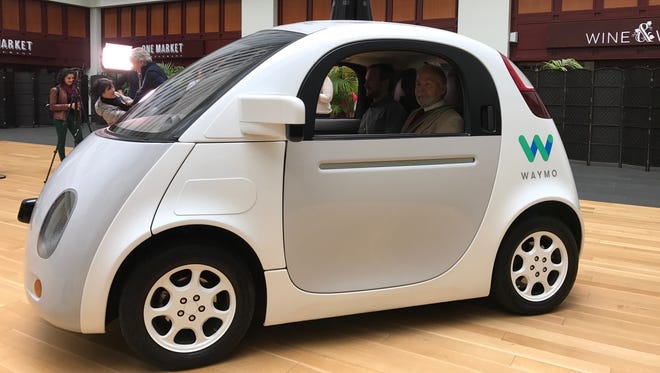Uber mulled risk of legal suit with Google months before it bought start-up at heart of legal battle

SAN FRANCISCO — Six months before Uber bought the self-driving truck start-up at the heart of a contentious legal battle with rival Google, Uber's lawyers were already discussing the risk of a lawsuit.
Emails between Uber's lawyers, revealed at a hearing Wednesday in San Francisco, raise the possibility Uber knew it was buying stolen intellectual property when it acquired Otto, the company founded by ex-Google engineer Anthony Levandowski, for $680 million in August 2016.
Uber and Waymo — the new name of Google's pioneering self-driving car division — are engaged in a high-stakes suit over the foundational technology that Uber bought to springboard its self-driving car ambitions, and which Waymo claims as its own. Uber has called Waymo’s charges baseless, and said there is no evidence that any of the 14,000 files in question ever touched Uber’s servers.
Waymo’s February suit charged Levandowski with surreptitiously downloading 14,000 files that included plans for Waymo's version of LiDAR, a critical sensing method for self-driving cars, from company computers in December 2015. He left the company a month later.
Three days after Levandowski left, Uber's lawyers were discussing potential legal issues around buying Levandowski's yet-to-be launched firm, according to discovery discussions for the case.
During the hearing, which began with dry descriptions of laser patents and ended with testy confrontations between the two companies' lawyers, Waymo lawyers said they had received a log of documents from Uber at 11:00 pm Tuesday night that was 700 pages long.
Included in the documents: a log including emails about providing legal analysis or advice on possible due diligence about the potential acquisition of Otto, which wouldn't launch out of stealth mode until May. In August, when Uber announced it was buying the start-up, it tapped Levandowski to run its nascent self-driving car efforts.
“So we have this incredible situation where days after Mr. Levandowski leaves Google, and months and months before any acquisition, it’s being discussed in email,” on January 29, 2016, said David Perlson, a Waymo lawyer with Quinn Emanuel Urquhart & Sullivan.
The potentially pivotal lawsuit between the two companies could impact the future of autonomous vehicles and who has access to crucial technology that will make them possible.
Uber says stolen self-driving car files never touched its servers
In a case centered on the alleged theft of reams of information, what hasn't been revealed are the 14,000 pages of documents Waymo claims Levandowski stole.
Uber argues that Waymo is asking for too much information and that it cannot possibly find all the documents being requested within the timeframe required
U.S. District Court Judge William Alsup on Wednesday suggested it shouldn't be that difficult to locate them. “There’s a thumb drive somewhere with all the documents downloaded from Waymo,” he said, and gave Uber until Wednesday at noon to produce the requested documents.